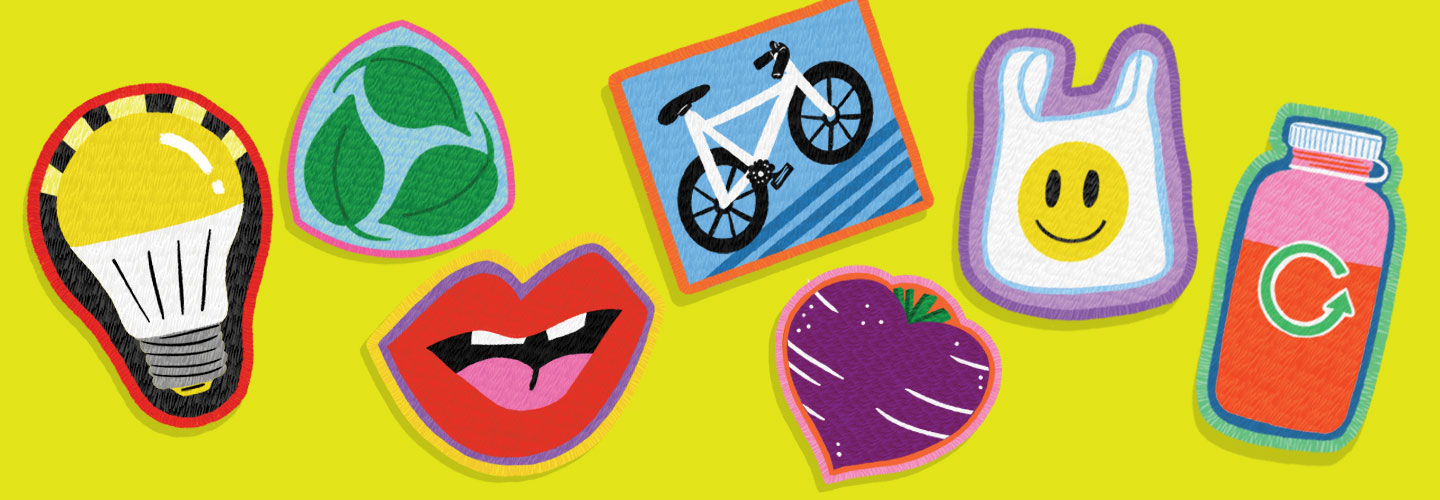POWER DOWN: Much of the electricity in our homes is generated by coal, oil, and gas. Use less by switching to energy-efficient light bulbs and turning lights off when you leave a room.
REDUCE FOOD WASTE: When food rots in a landfill, it releases methane, a powerful greenhouse gas. So encourage your family to eat everything in the fridge—and compost the leftovers.
TRAVEL THOUGHTFULLY: Whenever possible, walk, bike, or take public transportation instead of driving to help curb emissions and air pollution. Carpooling is another great option!
SHOP SMART: Aim to buy products from businesses that are committed to protecting the environment. You can also post on social media to encourage companies to use resources responsibly.
EAT YOUR VEGGIES: Producing meat and dairy generally requires more water and other resources than plant-based foods. So try to eat less meat and dairy and more fruits and vegetables.
SPEAK UP: Urge your friends and family to join you in taking action against climate change. Use social media to call on local, state, and national leaders to act now.
REUSE IT: Everything we buy requires energy to make. So try to shop secondhand, opt for reusable versus single-use items (such as water bottles), and recycle what you no longer need.

